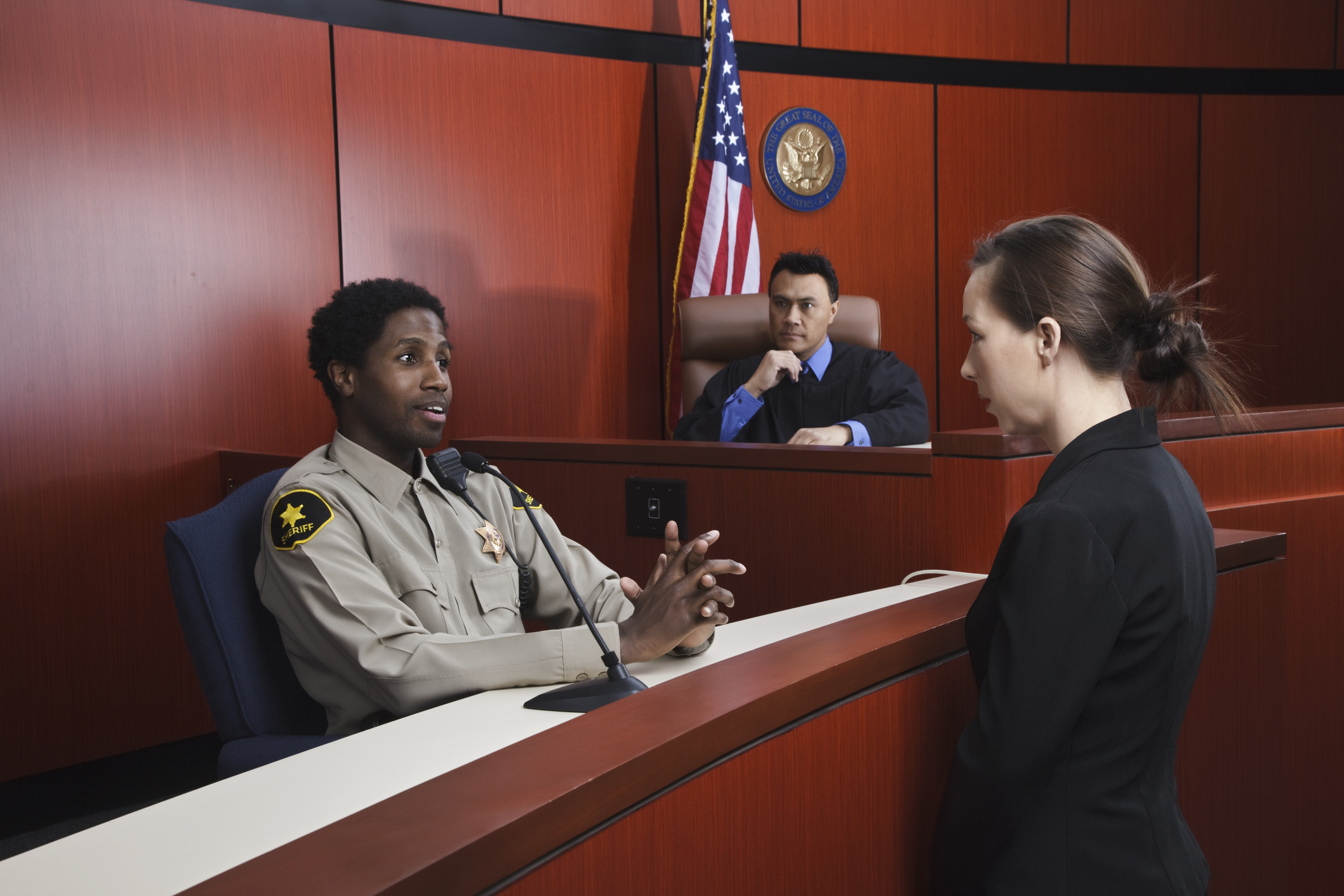Court Reporters Are Literally Writing Down Black People’s Testimonies Wrong

Credit to Author: Leila Ettachfini| Date: Thu, 23 May 2019 11:40:31 +0000
In 2013, Rachel Jeantel, a close friend of 17-year-old Trayvon Martin, testified during the trial of George Zimmerman. Jeantel, a young Black woman who was on the phone with Martin moments before he was killed, took the stand and spoke with the words she normally would—in what academics would call “African American English (AAE).” Her tone was stern and quiet. Naturally, she was upset; she had just lost a close friend.
In the aftermath of her testimony, Jeantel was heavily criticized by mostly-white media pundits and outlets. On Megyn Kelly’s “America Live,” attorney Jonna Spilbor commented that the then-19-year-old came across as “brutally ignorant.” On Fox News, Sean Hannity insisted that she had a “credibility problem.” A juror on the case told Anderson Cooper that she found Jeantel “hard to understand” and “not credible.”
As the last person to speak to Marin, Jeantel was the prosecution’s star witness. But her testimony went largely ignored, because the nearly all-white jury did not understand her. Now, a new study outlines how common such a lack of understanding is—and outlines the detrimental, life-altering impact it can have for Black Americans within the U.S. criminal justice system.
After watching Jeantel’s testimony and the criticisms that followed, a group of linguistic researchers from various institutions decided to test the frequency with which AAE is misunderstood within the courtroom. Their new study, which will be published in the journal Language next month, builds on previous research that found that court reporters frequently fail at accurately transcribing and comprehending testimonies spoken in AAE, resulting in crucial inaccuracies. (While African American Vernacular English—AAVE—has commonly been used to describe African American English, AAE refers to a broader dialect outside informal or vernacular use.)
Court reporters create real-time transcripts of the dialogue that takes place within a trial. What they take down is important: Attorneys use these transcripts to plan cross-examinations and jurors refer to them to come to a verdict. As a standard, court reporters are required to achieve at least 95 percent accuracy in their transcriptions before they are certified. They are tested on speed, punctuation, spelling, and specific medical and legal jargon in Standard American English (SAE).
For the study, called “Testifying while black: An experimental study of court reporter accuracy in transcription of African American English,” researchers tested already-certified court reporters based in Philadelphia by asking them each to transcribe 83 sentences in everyday AAE. The recordings featured nine different native AAE speakers recruited from West Philadelphia, North Philadelphia, Jersey City, and Harlem, who each have had contact with the criminal justice system. On average, the 27 court reporters who took part were only able to record AAE speakers with 82.9 percent accuracy.
“In some cases, the errors were not harmful, because they were uninterpretable,” said Taylor Jones, one of the study’s authors and a graduate student at the University of Pennsylvania. “In others, they changed participants, actions, and order of events.” In 31 percent of the 2,241 transcriptions, researchers found, the court reporters’ errors changed the content of what the speaker was saying, misinterpreting either who was involved, what was happening, when it happened, and/or where it happened.
“[These errors] could make or break an alibi in the real world,” Jones said.
“Once something is in the court record via the transcript, it legally becomes what was said even if it is inaccurate, which brings up questions of due process and equal protection under the law if some people are less likely to be accurately transcribed than others,” said Jessica Kalbfield, another of the study’s four authors and a grad student at New York University. “We know that AAE is primarily spoken by African Americans, though of course not all AAE speakers are African American and not all African Americans speak AAE.” Black Americans are more likely to be arrested, convicted, and face longer prison sentences than white Americans.
According to the study, none of the court reporters had training in AAE, despite it being widely common in their city and disproportionately represented in court.
Jones pointed out that a lack of understanding with AAE is not limited to court reporters, who happened to be the easiest group to test. “Miscomprehension of AAE, coupled with an assumption of understanding, is likely rampant,” he said.
In 2017, Warren Demesme told Louisiana police, “Give me a lawyer, dawg.” But police failed to end their interrogation and provide Demesme with a lawyer, as federal law mandates. Justice Scott Crichton justified their actions, writing that “the defendant’s ambiguous and equivocal reference to a ‘lawyer dog’ does not constitute an invocation of counsel.”
“It’s an absurd result, and not one that can be entirely blamed on the transcriber,” said legal scholar Patricia J. Williams, “but it goes to a larger point about the very willingness to understand [AAE].”
“AAE has more complicated grammar than ‘standard’ English,” Jones said. “[But] research consistently demonstrates that non-speakers of AAE (generally but not always non-Black people) tend not to understand these features. AAE is stigmatized, despite being equally valid, systematic, and rule-governed as other language varieties.”
Sign up for our newsletter to get the best of VICE delivered to your inbox daily.
This article originally appeared on VICE US.